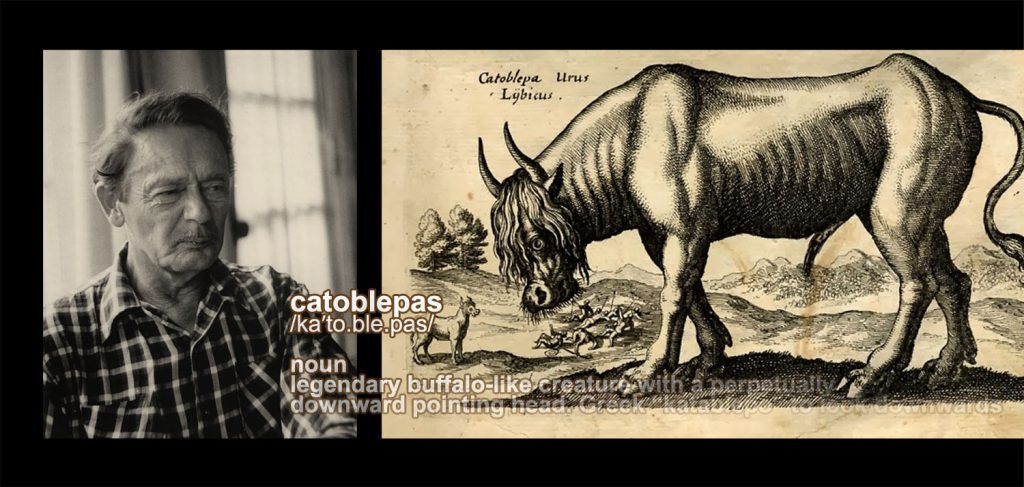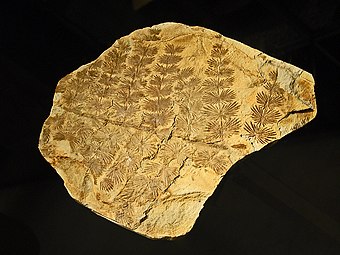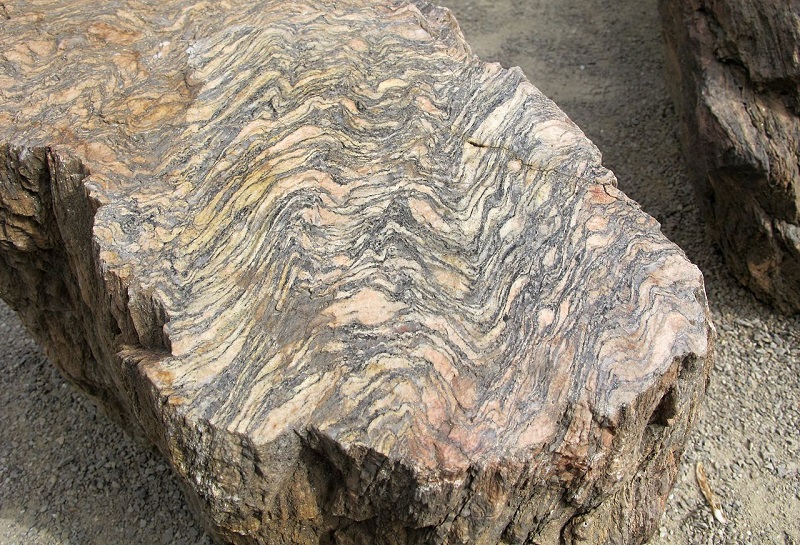Words Weird and Wonderful: Clark Ashton Smith’s Hyperborea
by Bill Ward
One of the defining characteristics of the work of Clark Ashton Smith is his rich vocabulary. From the antique to the allusive to the oddly conjugated, Smith’s polymathic mastery of the English language is a key aspect of his distinctive authorial voice.
Smith’s thorough understanding of words also means that they are more than mere window-dressing lending archaic exoticism to his stories. For a perfect example look at the first word below, calamite. It isn’t just a taxonomic word used to paint a picture of a long-vanished prehistoric age. Smith here deliberately plays with the word’s derivation from the Latin (ultimately Greek) for ‘reed pen,’ not only specifically mentioning such a pen in the sentence, but having the calamite serve as the ingredient of writing paper.
From “The Door to Saturn”
Calamite, n. Paleozoic plant resembling a horsetail. Greek (via Latin) “kalamos” reed pen
“…there was a writing-table of ivory, with reed-pens, and various colored inks in little earthen pots; and there were sheets of paper made from a kind of calamite, all scribbled over with odd astronomical and astrological calculations that caused Morghi to frown because he could not understand them.”
Flibbertigibbet, n. a flighty person, sometimes impish. Old English, “flepergebet” onomatopoetic descriptor of a chatterer or gossip.
“And they met those flibbertigibbet pygmies, the Ephiqhs, who hollow out their homes in the trunks of certain large fungi, and are always having to hunt new habitations because the old ones crumble into powder in a few days.”
Magniloquent, adv. Speaking in a high-flown or bombastic manner, ie. grandiloquent. Latin “magnus” great + “loqui” to speak.
“I have been conversing with one of the gods of Cykranosh,” he said magniloquently. “The god, whose name is Hziulquoigmnzhah, has given me a mission to perform, a message to deliver, and has indicated the direction in which I should go.”
From “The Seven Geases”
Anlace, n. double-edge dagger, medieval, also ‘Anelace.’ Middle English “anelas” Old French “alenaz,” Old High German “alasna,” awl.
“His bladed buckler, his mace, broadsword, hunting-knife, ax and needle-tipped anlace jingled on the ground before the obsidian block.”
Catoblepas, n. legendary buffalo-like creature with a perpetually downward pointing head. Greek “katablepo” to look downwards.
“Also, they heard the bellowing of an alpine catoblepas pursued by the Voormis, and the mad snarling of a saber-tooth tiger assailed and dragged down; and Ralibar Vooz had deemed that these noises boded well for the morrow’s hunting.”
Fumarole, n. hole in the earth from which gases emit. Italian “fumarola,” from Late Latin “fumariolum,” smoke hole (Latin “fumus” smoke)
“Directly overhead, in the face of an almost perpendicular cliff, were three of the cavern-mouths, which had the aspect of volcanic fumaroles.”
Geas, n. mystical compulsion, vow, or curse. Irish Gaelic “geis”
“Strong was the compulsion of his geas on Ralibar Vooz; and a numbness had seized his mind; and he felt only a dulled fear and a dazed wonder.”
Scaur, n. scar in a hillside, ie. a cliff or escarpement. Scotch dialect for “scar”
“The glassy scaurs and grim ramparts of Mount Voormithadreth…”
From “The Weird of Avoosl Wuthoqquan”
Fugacity, n. Having the property of passing away quickly; evanescent. Latin “fugax” transitory, fleeting
“Money and precious gems—these things alone, he thought, were immutable and non-volatile in a world of never-ceasing change and fugacity.”
Raddle, v. to twist together or interweave. Anglo-Norman “reidele” stout pole (as in a fence)
“Somehow, somewhere, he had taken a narrow path that wound among monstrous trees whose foliage turned the moonlight to a mesh of quicksilver with heavy, fantastic raddlings of ebony.”
Similor, n. alloy of copper and zinc, resembling a golden-hued brass. French/Latin “similus” similar + “or” gold
“The room was obliquely shafted by the brief, aerial gold of the reddening sunset, which fell through a crystal window, lighting a serpentine line of irised sparks in the jewel-studded lamp that hung from copper chains, and touching to fiery life the tortuous threads of silver and similor in the dark arrases.”
From “The Testament of Athammaus”
Flagitious, adj. shamefully wicked, criminally infamous. Middle English “flagicious” from Latin “flagiti(um)” shame, scandal + “-osus”
“Hoping fervently that Knygathin Zhaum and the vile, flagitious properties of his unhallowed carcass would now be brought to a permanent end, I raised the sword of justice high in air and smote with heroic might.”
Nathless, adv. archaic for nevertheless. Old English “na the laes” not less by that
“I was well aware that I might be dealing with things which were beyond the ordinary province of a public headsman; but nathless I lifted the great sword in a clean, symmetrically flashing arc, and brought it down on the piebald nape with all of my customary force and address.”
Piacular, adj. Sacrificial, expiatory, as in atoning for one’s sins. Latin “piacularis;” “pius” dutiful (to gods, country, etc) + “-culum” neuter noun suffix for instruments and places + “-aris” adjective suffix
“We were entering the square in which was the … block whereon so many thousand miscreants had laid their piacular necks…”
From “Ubbo-Sathla”
Gneiss, n. banded metamorphic rock formed by intense pressure (such as granite). Middle German “gneiste” spark
“At length, after aeons of immemorial brutehood, it became one of the lost serpent-men who reared their cities of black gneiss and fought their venomous wars in the world’s first continent.”






